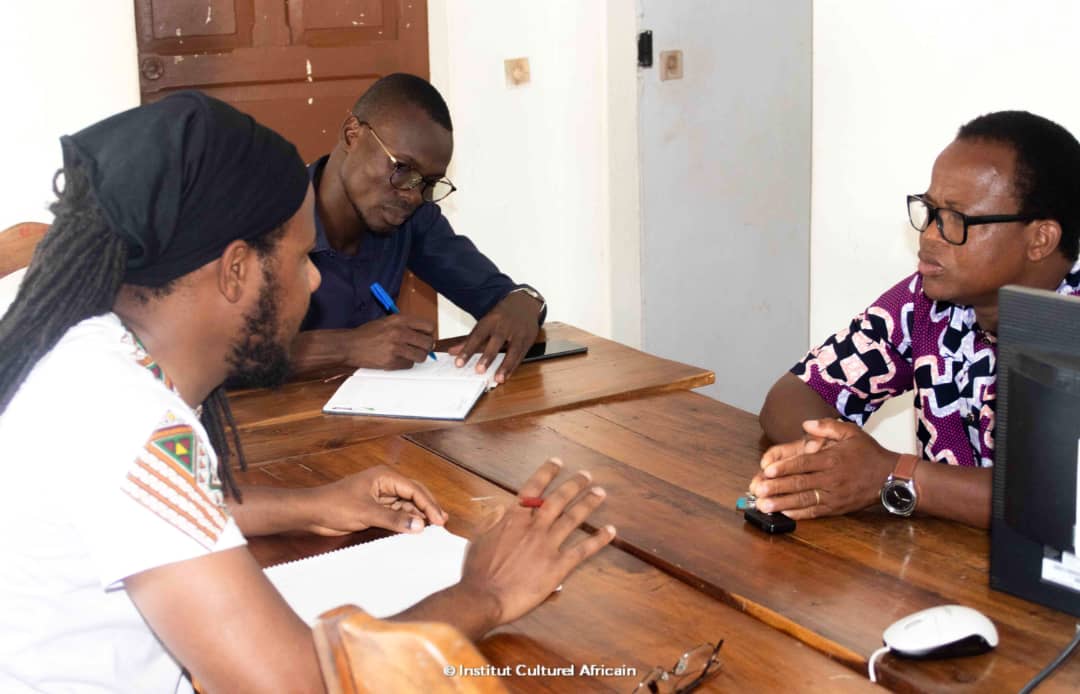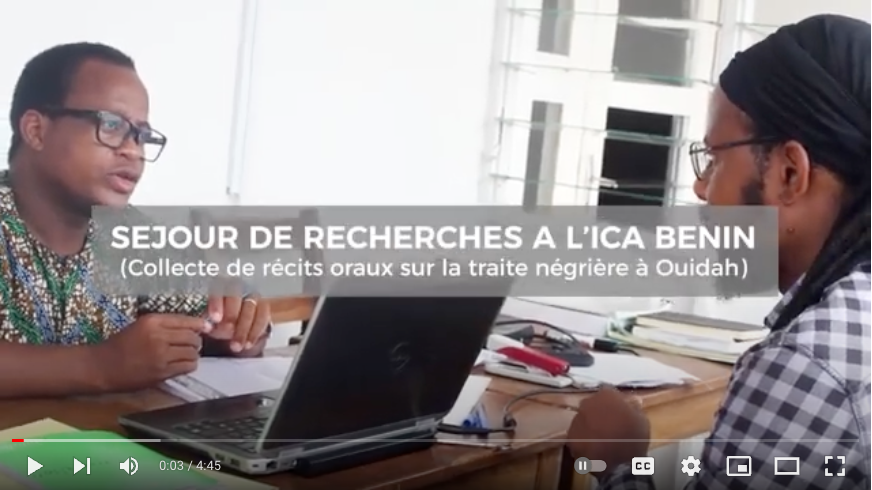
Fieldwork Briefing at Afrique Décide, Fred Tounde Oguidi, Syvestre_Edjekpot
Tracing the remnants of the slave trade in Ouidah
Tracing the lingering effects of the slave trade in Ouidah has been a multifaceted endeavor that required both remote and on-site research. In addition to conducting surveys during the pandemic period, and following an international colloquium organized in Ouidah to explore this topic further, a fieldwork team worked in collaboration with the African Cultural Institute of the NGO "Afrique Décide" to update and expand upon the initial surveys conducted in 2021.
While the first surveys focused exclusively on the oral accounts kept by the families of both slavers and slaves, the new survey targeted a more diverse group of 16 men and women, including 4 main categories:
- Artists (painters, sculptors, and musicians),
- Tourist’s guides,
- Priests (of the fa and voodoo religions), and
- Family leaders.
The interviews were conducted in various 3 cities, Ouidah, Calavi, and Cotonou, to gain a deeper understanding of the memories that persist in the professional, cultural, and religious practices of the local people.
While the Door of No Return serves as an official monument to commemorate the horrors of the slave trade, other monuments have been built by a number of actors and are now an integral part of the city's valued heritage. Some of these memorials such as the giant assign (Assin géant), an artwork designed by Charly Djikou, are now being invested by social groups and spiritual leaders to pay homage to deported and promote reconciliation between Africa and its diaspora, Africa and the world. Nonetheless, these investigations underscore the need for further research across all layers of a city marked by diverse and untapped memories.


